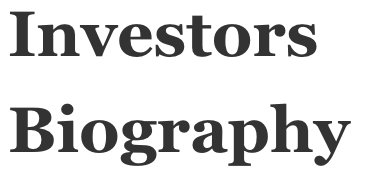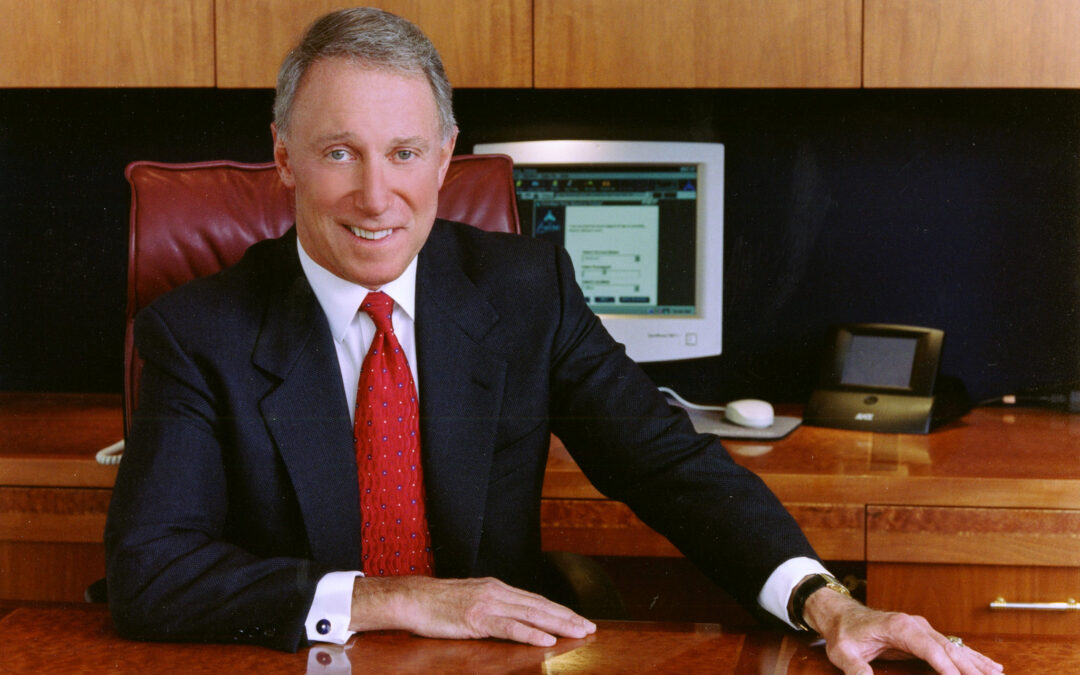Jim Kimsey cofounded America Online in his 40s after successful careers in the military and business. The tech company, which he led in its early days, proved to be his biggest financial success. Following his retirement in the mid-‘90s, he spent the remainder of his life focusing on philanthropy.
Early Life
James V. Kimsey was born in Washington, DC, on September 15, 1939. He grew up in Arlington, Virginia, as the oldest of five children.
In his youth, financial difficulties were a common concern in his household. His father, a World War I veteran, faced the task of supporting the family on a modest income from his government job. These financial challenges, along with the responsibilities of caring for his brother with autism, contributed to the difficulties of Kimsey’s upbringing.
To help provide for his family, Kimsey began working when he was young, first as a paperboy and then as a caddy. He found he enjoyed working and came to believe there was no limit to what he could achieve.
Kimsey excelled in school, with his aptitude earning him the nickname “Lightbulb.” He attended Gonzaga College High School in Washington, DC, on a scholarship but dropped out in his senior year to work as a doorman. After his mother helped him get another scholarship, he finished high school at St. John’s College High School, also in Washington, DC.
College and Military Career
Kimsey earned a scholarship to Georgetown University, where he studied for a year before dropping out to attend West Point. His time at the military academy was foundational. On his first day there, his officers told him the only acceptable response to their questions was “Yes, sir,” “No, sir,” or “No excuse, sir.” From this, he learned that leaders always take responsibility for their actions and never pass the blame elsewhere.
Kimsey graduated in 1962 with a degree in military engineering. Serving as an airborne ranger in the US Army for the remainder of the ‘60s, he completed three combat tours, one in the Dominican Republic and two in Vietnam.
His achievements over this time include serving as a company commander during the 1965 combat operations in the Dominican Republic. He commanded the first US troops to set foot in the country. He also led a unit to safety under heavy enemy fire. In Vietnam, he commanded a 12-man team, worked with the CIA, and partnered with Catholic nuns to construct an orphanage.
Business Career
Kimsey ultimately spent eight years in the Army. After achieving the rank of major and receiving numerous commendations, he retired from the military and returned to his hometown in Washington, DC.
He used his savings to put a down payment on a small building. He planned to lease part of it to a restaurant and rent the rest to stockbrokers. However, when the restaurant looked ready to go under in the middle of the deal, Kimsey took it over.
Despite knowing nothing about the restaurant business, Kimsey quickly showed deft instincts. He named the restaurant The Exchange and installed a ticker tape that patrons could follow as they ate. The Exchange quickly became a hit and launched Kimsey’s career as a restaurateur.
Kimsey, who self-deprecatingly said he was like the blind cartoon character Mr. Magoo at the time of his first restaurant venture, went on to open five restaurants. He credited his success in the business to his ability to identify talented people, a skill that would show itself again after he pivoted to tech.
The Tech Sector
By 1982, Kimsey was looking for a change. After selling his restaurant interests, he was searching for a new investment opportunity when a former West Point classmate recommended looking into a local start-up, Control Video, that sold downloadable video games by phone.
Kimsey liked what he saw and invested in the business. By the middle of the decade, however, Control Video was facing financial difficulties. Meanwhile, Kimsey had developed a deep interest in technology. Unable to sell Control Video, he reorganized it into a new venture, Quantum Computer Services.
America Online
Kimsey ditched the company’s video game business and rebuilt Quantum Computer Services after purchasing software that enabled interactive online communication. In 1992, the company was renamed America Online (AOL). Cofounded by Steve Case, AOL would grow into a hugely influential company that fundamentally changed how Americans accessed the internet.
As chairman and CEO, Kimsey led AOL to early success over its first three years. He kept a low profile during this time, choosing to wield power behind the scenes instead. His early leadership of the company also saw him mentor the much younger Case.
Kimsey turned over the leadership of AOL to Case in 1995. In doing so, he proved again his keen eye for talent. Under Case’s leadership, AOL grew into a massive media conglomerate. In 2000, it was sold to Time Warner for $160 billion.
Philanthropy and Honors
After leaving AOL, Kimsey focused on philanthropy for the rest of his life. In 1996, he established the Kimsey Foundation, a nonprofit supporting educational and cultural initiatives in Washington, DC. He also gave $10 million to the Kennedy Center for the Performing Arts and was appointed to its board twice by sitting presidents.
Outside of culture, Kimsey served as the chairman of the International Commission on Missing Persons and as the chairman emeritus of Refugees International. For nearly four decades, he personally supported the orphanage he had helped to build as an Army ranger in Vietnam. Prior to his death in 2016, he was inducted into the Ranger Hall of Fame. Today, an athletics center at West Point still carries his name.

